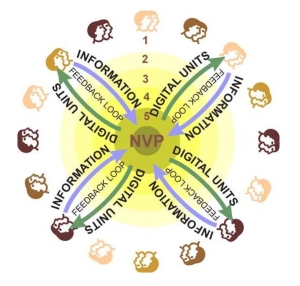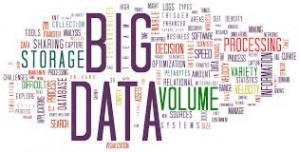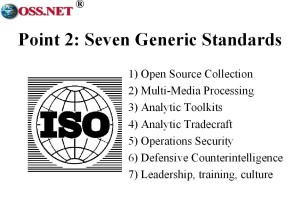
Appropedia is for collaborative solutions
in sustainability, appropriate technology and poverty reduction.
Contributors have made 274,988 edits and uploaded 21,269 files. Browse our categories or all 6,212 articles.

New Planetary Economy
A new, rational, self-regulating economic system is necessary to meet present and projected global realities. The current model creates artificial scarcity by strictly controlling the issue of currency, converting it into a tradable commodity itself. Money is further hoarded and manipulated in such a way as to create debt, inequity and poverty.
The silver lining to the current economic crisis is that people will be forced, perhaps for the first time, to examine their unconscious assumptions about this entrenched system and stretch their cognitive range to allow for a different approach.
Below the fold are the executive summary in full text, and a 22 page PDF with graphics.
Continue reading “Larry Chang: Values-Based Planetary Economy”

Kevjn Lim is an independent writer and Middle East foreign policy analyst at Open Briefing: The Civil Society Intelligence Agency. In the latter half of 2013, he was Turkey representative for the Syria Needs Analysis Project (SNAP), covering the Syrian crisis in the northern governorates and Turkey. From 2007-2011, he served as delegate with the International Committee of the Red Cross (ICRC) in the Palestinian Territories, Sudan’s Darfur region, Iraq, Gaddhafi’s Libya and Afghanistan. He also taught modern languages (Hebrew, Arabic, French and Spanish) at both Trinity and Queens’ Colleges, University of Melbourne (2004-2006), and served as intelligence officer with the Singapore Armed Forces (2001-2004). Kevjn holds a BA and an Honours Degree (First Class) in political science and Jewish-Islamic studies from the University of Melbourne. He is currently doing postgraduate work in strategic studies. Among other languages, he is fluent in Arabic, Hebrew and Persian, as well as some Turkish, and is currently based in the Middle East.
Continue reading “Answers: Robert Steele to Kevjn Lim on Big Data”

Zoomanitarians has been in the works for well over a year, so we’re excited to be going fully public for the first time. Zoomanitarians is a joint initiative between Zooniverse (Brook Simmons), Planet Labs (Alex Bakir) and myself at QCRI. The purpose of Zoomanitarians is to accelerate disaster damage assessments by leveraging Planet Labs’ unique constellation of 28 satellites and Zooniverse’s highly scalable microtasking platform. As I noted in this earlier post, digital volunteers from Zooniverse tagged well over 2 million satellite images (of Mars, below) in just 48 hours. So why not invite Zooniverse volunteers to tag millions of images taken by Planet Labs after major disasters to help humanitarians accelerate their damage assessments?

The Social Labs Revolution: A New Approach to Solving our Most Complex Challenges
The following is an excerpt from the introduction of the book, “What Are Social Laboratories?”
Zaid Hassan
Stanford Social Innovation Review, 19 May 2014
The Social Labs Revolution reports and builds on a decade of practical experiments in addressing social challenges that are complex in nature. These range from the sustainability of global food systems and child malnutrition to state collapse and climate change. Zaid Hassan, a co-founder of Reos Partners, makes the case that taking a planning-based approach risks almost certain failure. Instead he expounds on an experimental, prototyping based approach, social labs, that have proven more effective in addressing complex challenges.
The following is an excerpt from the book.

Building on national standards, such as Spanish UNE 166006:2011 Competitive Intelligence and Technological Watching
Adoption is anticipated for 2015.
CEN/TS 16555 Standards Family
Innovation Management – Part 2: Strategic Intelligence Management.
Draft
2014-12

Phi Beta Iota: A fine start. In 2008 Robert Steele approached the International Standards Organization (ISO) about creating standards, and they responded with interest. US interests opposed the standards and nothing came of the conversation.

Transitioning to a Commons-Based Society
Background on the FLOK Project
Michel Bauwens:
The National Plan of Ecuador recognizes and stresses that the global transformation towards knowledge-based societies and economies requires a new form for the creation and distribution of value in society. The National Plan's central concept is the achievement of ‘Buen Vivir' (Sumak Kawsay) or ‘good living'; but good living is impossible without the availability of ‘good knowledge', i.e. ‘Buen Conocer' (‘Sumak Yachay'). The third national plan for 2013-2017 explicitly calls for a open-commons based knowledge society[1].
President Correa himself exhorted young people to achieve and fight for this open knowledge society[2].
The FLOK Society is a joint research effort by the Coordinating Ministry of Knowledge and Human Talent, the SENESCYT (Secretaría Nacional de Educación Superior, Ciencia, Tecnología e Innovación) and the IAEN (Instituto de Altos Estudios del Estado) to develop transition and policy proposals to achieve such an open commons-based knowledge society.
FLOK refers to:
Continue reading “Michel Bauwens: Transitioning to a Commons-Based Society”